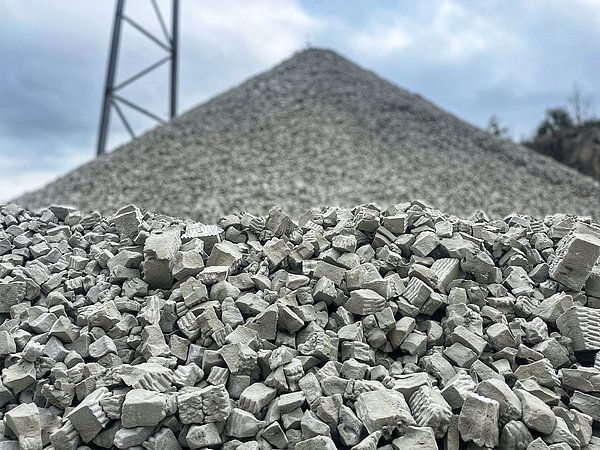Silicon carbide acts as a foaming agent when crushed glass is heated to high temperatures. Fiven specializes in manufacturing a tailored grade of silicon carbide (SIKA FOG) optimised for foam glass manufacturing. This results in superior foam glass gravel that is consistent in density, has better thermal insulation properties and has higher compressive strength.
Foam Glass Gravel Manufacturing Process
The process starts by collecting waste glass from bottle banks and recycling centers. The glass is crushed into a small cullet, cleaned, and mixed with silicon carbide powder. Typically, between 0.8-1.5% silicon carbide by weight is added.
This mixture is then heated to over 1000°C in a furnace. At these extreme temperatures, the silicon carbide reacts and releases gases that cause the crushed glass fragments to foam and expand in volume. The foam glass is cooled rapidly, so the foam structure sets. As a result of the cooling process, the endless foam body disintegrates into smaller pieces after leaving the oven.
Benefits of Foam Glass Gravel
The properties of the final foam glass gravel aggregate make it suitable for many applications in construction and infrastructure:
- Extremely lightweight - up to 90% lighter than normal gravel. This reduces loads on foundations and structures.
- Excellent insulation performance - the trapped air pockets give foam glass gravel thermal conductivity comparable to rigid polystyrene foam boards. This helps increase energy efficiency.
- High strength and durability - resistant to weathering, physical wear, and chemical corrosion. Made from inorganic materials, so won't rot or degrade over time.
- Sustainable and environmentally friendly - made from upcycled waste glass that would otherwise go to landfills. A way to reuse silica.
- Non-combustible and fire resistant. Safe for use in building insulation.



